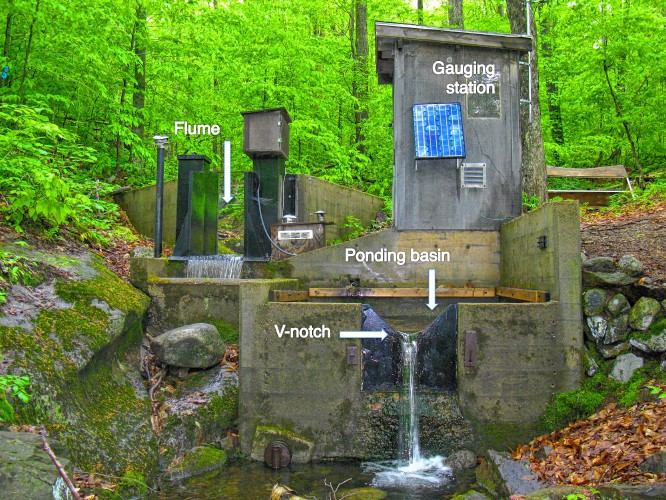A long-running study at Hubbard Brook Experimental Forest – where long-running studies are the norm – found that the population of beetles fell an incredible 83% between mid 1970s and mid 2010s.
The most likely cause? Less snow.
The finding indicates “that snow cover in northern hardwood forest is essential for sustaining the beetle community. These results imply that additional climate warming might further reduce the abundance and diversity of beetles and other arthropods inhabiting the forest-floor, potentially affecting critical ecosystem processes such as decomposition and carbon storage.”
The abstract from the journal Biological Conservation is here. The full paper requires payment, or a connection with an academic library.
The irony is that the arrival of some new species of beetles (emerald ash borer, I’m looking at you!) has proved devastating to our forests. Nature has a sick sense of humor sometimes.
In a 2016 story I called Hubbard Brook the source of the most important scientific research in New Hampshire history – the discovery of acid rain. That might be a bit of hyperbole, but not by much.


 Return to the Concord Monitor
Return to the Concord Monitor